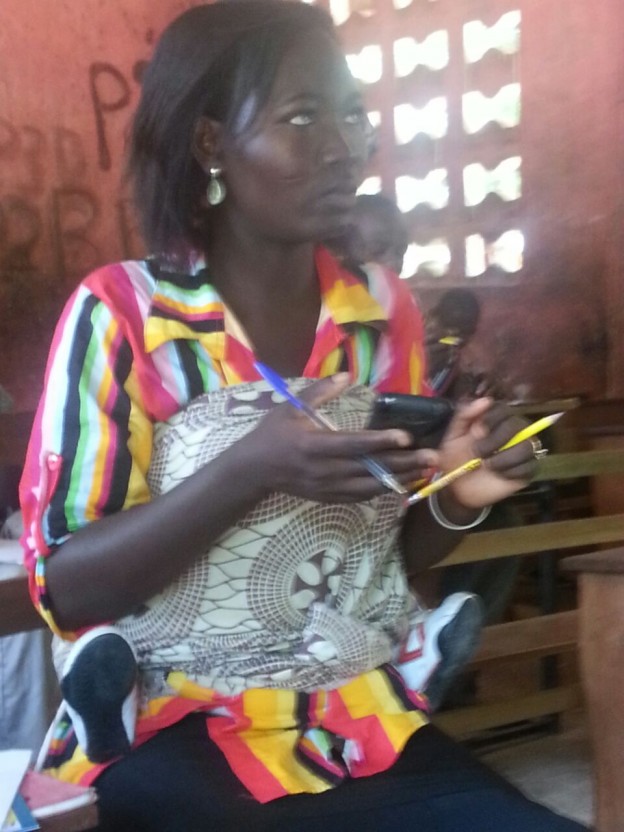Created by the charity Educators International, Phonics by Phone is an ambitious and innovative project which aims to train teachers in remote parts of Ghana. Using the basic mobile that is already in their pocket, teachers will be trained how to teach reading from the beginning, with a specially written phonics course and resources.
This ingenious solution works by providing 100 Phonics Lessons, specially written by IFERI’s Debbie Hepplewhite and recorded by Sheena Campbell, which are available to download as audio files that teachers can easily access and listen to on their phone. To access or listen to these modules simply click here.
In addition, there is also a very clever assessment project to support and sustain the Phonics by Phone network. It works from an android phone app which then prints to a tiny micro-printer! Each time the app is used a new assessment is generated – watch the video below to see it in action. Amazing!
A crowd-funding initiative has been established to support this innovative, low-cost project which is already having a huge impact. On an ‘all-or-nothing’ basis the charity has until 7th August to raise the £15k target. They are already more than halfway there – but with only days to go – every donation counts. And if they don’t hit their target – the project will receive no financial help at all.
If you feel that you could support this worthwhile initiative please visit: https://www.launchgood.com/project/help_get_ghana_reading__by_phone#/
Educators International is also keen to connect educators from around the world with some of the teachers in Ghana who are close to qualifying. If you would like to find out more about being a pen-pal mentor to one of the highly committed, volunteer teachers in Ghana please click here to find out more.
Michael Stark, one of Educators International’s directors and trustees, urges all those who value literacy and reading to make a difference:
‘If properly taught using phonics, all these children will learn to read and write well, rather than drop out of school early. Help us achieve a miracle – reading success for huge numbers of children in Ghana.’
Please help spread the word and share this blog post with friends and colleagues. Thank you.



